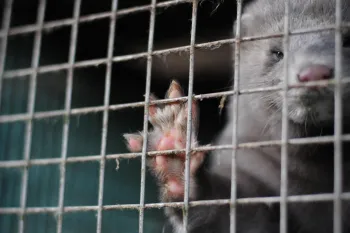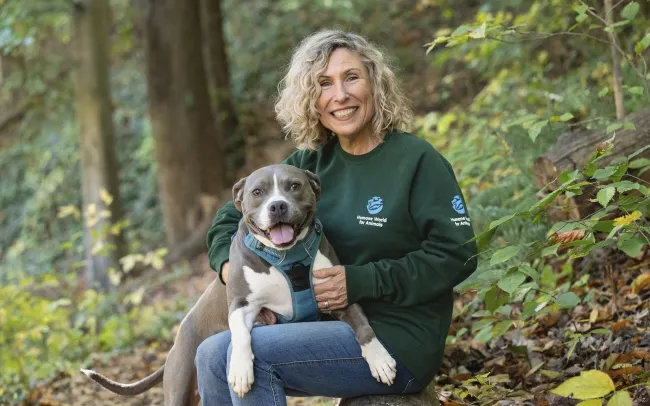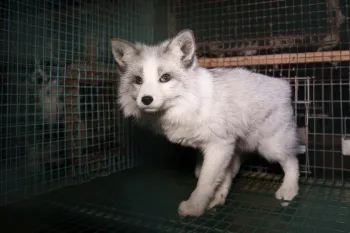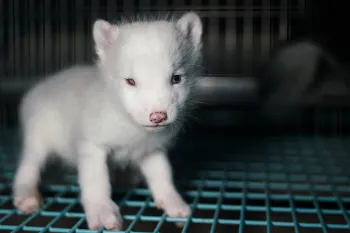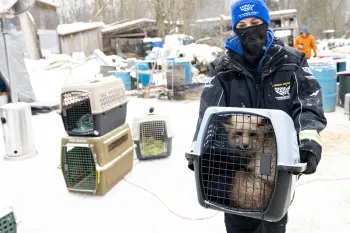In the early 20th century, the American mink was introduced to Europe for fur farming, and, in some cases, deliberately released into the wild for hunters. Eventually, millions of American mink established populations in the wild and thrived across Europe.
Last week, the European Union officially added the non-native American mink to its list of Invasive Alien Species of Union Concern. This means that keeping and breeding American mink is banned starting July 2027. This is major news, as this designation should effectively ban mink fur farming across the EU. But will it?
The end of this cruel industry could not come fast enough. Fur factory farms confine millions of wild animals in small, wire-bottomed cages. They live their whole lives unable to engage in natural behaviors—such as running, digging and, in the case of mink, swimming—and they are killed by gassing, electrocution or bludgeoning.
Under the new regulation, EU Member States will be required to prohibit the breeding, sale, keeping, transport and release of American mink. They will also be required to support fur farmers in transition away from the industry through compensation, training and reemployment programs.
But there’s a catch: Mink fur farming could continue if the European Commission allows Member States to issue permits to fur farmers under a derogation in the EU's Invasive Alien Species Regulation—that is, a loophole that would sidestep the ban on keeping American mink as an invasive species.
Unfortunately, we have seen this happen before. The raccoon dog was added to the IAS list in 2019; Finland and Poland were granted an authorization for 30 years to allow raccoon dog fur farming to continue, despite overwhelming evidence of the ecological threat posed. So, while the regulation could help accelerate the closure of fur farms in some countries, others—such as Denmark, Greece and Finland—could seek to undermine the ban by requesting to continue mink farming under exemptions.
That’s why we are urging the Commission to reject industry attempts to sidestep a mink ban and instead to introduce an EU-wide fur farming ban for all species in the fur trade. This would be in line with the 1.5 million signatures on the European Citizens Initiative petition calling for a complete ban.
Twenty-two European countries, including 16 Member States, have already banned fur farming, including most recently Estonia, Latvia, Lithuania and Romania; and though there is no official ban in Sweden or Bulgaria, there are no more active fur farms there. But in the European countries where fur farming is not banned, nearly 6 million American mink are still being kept on fur farms, in countries such as Poland, Spain, Finland, Greece and Denmark.
Fur farming is an ethical and environmental disgrace. There is no place for it in the humane world that millions of us are striving to create.
